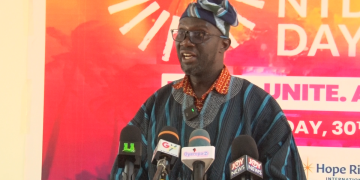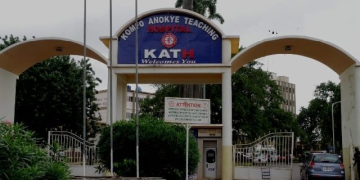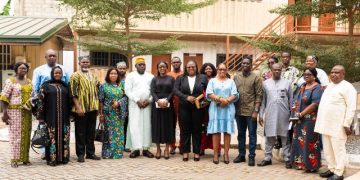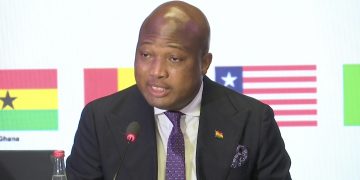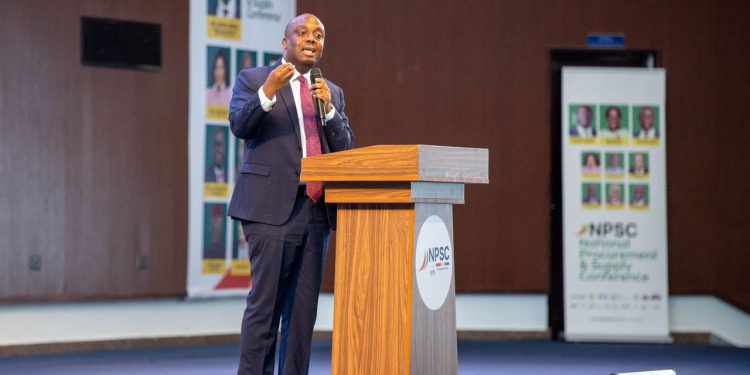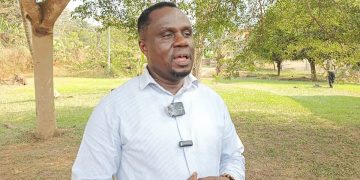The Deputy Minister of Finance, Thomas Nyarko Ampem, says government has introduced reforms to ensure fiscal discipline in Ghana’s Public Procurement system.
Addressing the National Procurement and Supply Conference in Accra on the theme: Transforming Public Procurement for Sustainable Development :Policies, Practices and Pathways “, Thomas Ampem Nyarko explained that going forward, only Ministries, Departments and Agencies (MDAs) with approved budgets and allotments will be granted procurement approval to award contracts.
He said, this is part of reforms under President John Dramani Mahama’s “reset agenda” to curb leakages, inefficiencies, and corruption in Public Financial Management.
“From the start, on 7th January 2025, President John Dramani Mahama committed this Government to resetting the economy by creating a new culture of economic governance. Since then, under the able leadership of My Minister, Hon. Dr. Cassiel Ato Forson, the Ministry of Finance has moved swiftly to reform the PFM system, with strong focus on the Procurement System”
He added that “we have amended the Public Procurement Act to make commencement certificates and budgetary provisions prerequisites for all procurements to be paid by central government “.
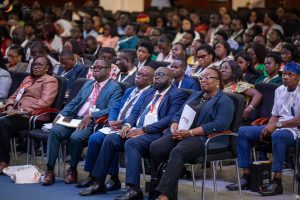
The Deputy Finance Minister cited reports by Civil Society Organizations and Professional Bodies including Imani Gha a, ACEP and the Ghana Institute of Procurement and Supply (GIPS) , which revealed that Ghana lost billions of cedis to procurement irregularities over the past decades.
He said,between 2011 and 2021 alone, procurement infractions cost public boards GH¢850 million, while GIPS estimated that GH¢11.8 billion was lost from 2015 to 2019 — averaging GH¢2.36 billion annually.
He stated that such losses denies expenditure on key social programs such as those under the Ministry of Gender, Children and Social Protection, undermining development efforts.
“unsurprisingly, the reports do not attribute the huge losses in public funds to politicians/policy makers alone.
Rather, they confirm a shared responsibility. They attribute the losses to weak oversight, lack of professionalism, and inadequate enforcement of procurement laws. In effect, all stakeholders, including policy makers and procurement professionals are responsible for that outcome”.
The minister averred that procurement should not be treated as a clerical function but as a strategic anchor for sustainable development.
He commended GIPS for pushing the Procurement Practising Bill, which is currently under Cabinet consideration.
The Bill, when passed, is expected to professionalize procurement practice, raise ethical standards, curb malpractices, and embed environmental and climate considerations in contracting.
The Deputy Finance Minister outlined pathways to strengthen Ghana’s procurement system, including:Investing in continuous training for procurement professionals, strict enforcement of existing laws, full adoption of technology through GHANEPS, Supporting local suppliers to build resilience and create jobs,embedding green procurement to reduce environmental impact and nsuring passage of the Procurement Practising Bill.
He emphasized that government’s 24-Hour Economy Policy and commitment to local content mean Ghana will deliberately reduce importation of products that can be produced locally.
“Every contract awarded to a capable Ghanaian company creates jobs that endure beyond a single project. Every insistence on local content builds industries that can compete across Africa and beyond,” he said.
He urged procurement professionals to see themselves as key players in building trust in governance, strengthening fiscal discipline, and driving industrialization under the African Continental Free Trade Area (AfCFTA).
Source: www.kumasimail.com






